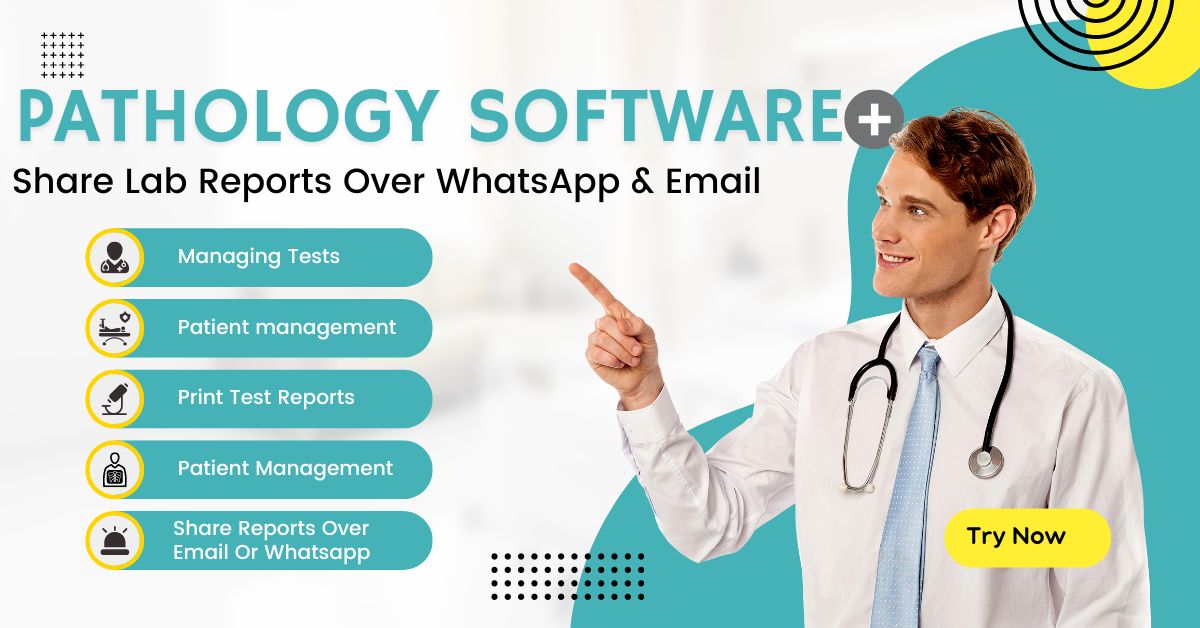Organizations frequently look for adaptable solutions to effectively satisfy their workforce needs in today’s dynamic business environment. The idea of an Employer of Record (EOR) is one such approach that is gaining momentum. The global market size of Employer of Record is expected to grow at a CAGR of 12.25% by 2028, with a value of USD 1702.14 million.
Businesses can streamline processes, handle legal responsibilities, and realize the full potential of their staff with the help of Employer of Record services, which acts as a strategic partner for them.
Many businesses are turning to EOR due to the development of remote work, global expansion, and complex labor laws. The EOR Employer of Record arrangement enables companies to concentrate on their primary business while adhering to regional labor laws and regulations.
Expert Advice
Employer of Record services reduces the administrative hassles of hiring workers globally, allowing businesses to concentrate on their core skills. It offers a scalable and adaptable solution that enables companies to enter new markets while assuring compliance and reducing risks quickly. Companies can save money by outsourcing employment-related operations to an EOR instead of forming independent legal organizations and handling regional payroll systems
We will discuss the Employer of Record meaning, utilization, and advantages. We’ll also help you find the right employer for record services.
What Is An Employer of Record?
An Employer of Record (EOR) is a third-party organization that takes on the role of being the group of employees’ official employer. Businesses can outsource various administrative and human resource tasks, including payroll processing, tax compliance, employee benefits, and regulatory compliance, by working with an EOR. To relieve the burden of ongoing employment management, the Employer on Record handles these duties on behalf of the client organization.

The EOR creates a legal relationship with the employees of the client firm and takes care of the required documentation, such as tax forms, employment contracts, and benefit registration. The EOR handles employment’s administrative and legal facets while the client company maintains operational control and direct supervision of its employees.
The client company’s reduced administrative and legal burdens are the main benefit of hiring an Employer of Record. Businesses can concentrate on their core operations and growth objectives while maintaining compliance with employment laws and avoiding risks by utilizing the infrastructure and knowledge of the EOR.
By now, you are clear with the Employer of Record definition; let’s understand more about global EOR.
What is a Global Employer of Record?
Global Employer of Record (EOR) is a service provider that enables businesses to hire and employ workers in other nations without setting up their legal corporations or subsidiaries. By serving as a middleman, the international Employer of Record takes on the tasks of the legal employer, including things like payroll, tax compliance, benefits administration, and employee contracts.

Globalization and the rising desire for a flexible workforce have encouraged companies to investigate new markets and expand their operations globally. However, navigating the complicated and constantly evolving world of foreign employment rules and regulations can be difficult and time-consuming. A global and remote Employer of Record can help by offering a complete program for managing international personnel.
The Global Employer Record assumes the legal and administrative duties connected with working abroad, ensuring that social security, tax, and labor rules are followed. As a result, businesses are spared the difficulties and dangers of managing international workers independently.
A global employer of record software acts as a strategic partner for businesses aiming to increase their international presence and access global talent pools. The global employment EOR helps businesses concentrate on their main business while reducing the risks and complications of managing an international workforce. It does this by taking on the legal and administrative duties of employment.
Global EORs provide a holistic solution that streamlines the process of international expansion and maximizes operational effectiveness owing to their experience, infrastructure, and local employment laws.
How Employer of Record Works?
An Employer of Record (EOR) allows firms to delegate specific employment tasks to a knowledgeable outsider while maintaining operational control and staff management. The professional employer organization handles important duties like processing payroll, withholding taxes, administering benefits, and adhering to labor laws.
The client company and the EOR sign an agreement outlining the services offered to start the process. This contract normally contains information about the number of employees, their job descriptions, and the length of the engagement. Once the contract is in place, the client gives the Employee of Record access to all necessary employee data, including personal information, employment contracts, and pertinent paperwork.

The Employer of Record services acquires all employer-related obligations upon becoming the legal employer. This involves filing paperwork with the right agencies, managing payroll and tax requirements, and handling health insurance and benefits administration. The Employee of Record follows all local entity labor laws, rules, and reporting requirements.
The EOR handles employment’s administrative and legal entity facets while the client company retains control over day-to-day activities, including work assignments and performance management. This arrangement frees the client from the administrative hassles and potential hazards of being the direct employer, allowing it to concentrate on its core business operations.
By now, you know the meaning of Employee of Record. You must also know that EOR provides other services, including employee onboarding, offboarding, training and development plans, HR support, and administrative tasks. The client organization receives a complete workforce management solution from these services, improving employee experience.
It’s crucial to remember that an EOR’s precise operations can change based on the service provider and the details of the client-EOR contract. The Employee of Record service receives payment from the client company for their services, often calculated as a flat charge per employee or as a percentage of the employee’s salary.
An Employer of Record streamlines co-employment complications and offers companies a workable personnel management option. Companies can streamline processes, reduce employment-related risks, and concentrate on accomplishing their strategic goals by utilizing the knowledge of an EOR.
When to Use an Employer of Record?
Businesses can outsource employment-related responsibilities through the EOR arrangement, lessening the administrative load of recruiting and managing staff. The following are some scenarios where using an Employer of Record can be beneficial:

1. Global Expansion
When a business seeks to extend operations abroad, it frequently encounters various administrative and legal challenges with hiring. Each nation must adhere to specific labor laws, rules, and compliance standards. By collaborating with a Global Employer of Record (EOR), a company can benefit from the infrastructure and local knowledge of the EOR. The Employee of Record is in charge of managing payroll and taxes, adhering to local labor regulations, and negotiating the difficulties of the labor market there.
2. Temporary Staffing
Businesses frequently need seasonal or temporary staff to address shifts in workload or specific projects. The employment and management of temporary employees can be streamlined by working with Employer of Record services.
The administrative responsibilities for these employees’ hiring, onboarding, payroll, and compliance are handled by the EOR. This frees up the business from having to manage employment contracts, find new employees, and handle issues relating to temporary workers. Without the long-term commitment and administrative burden of direct hiring, it offers flexibility in scaling the workforce up or down as needed.
3. Compliance and Expertise
Diverse nations and areas may have diverse employment rules and regulations. It can be difficult to comply with these requirements, particularly for businesses expanding across numerous jurisdictions. EORs have extensive knowledge of regional laws and are experts in employment law. They keep up with labor law changes and workers’ compensation insurance and ensure the business’s hiring procedures comply. By collaborating with an EOR, businesses can reduce non-compliance risk, avoiding fines, legal issues, and reputational harm.
4. Employer Branding and Employee Relations
Companies continue to influence daily operations and the overall employee experience even while the EOR becomes the legal employer. They may build their corporate identity, company culture, and values, strengthening employee interactions. Businesses may enhance their employer brand through this hybrid approach while gaining the EOR’s administrative assistance.
5. Risk Mitigation
Employers have inherent risks and obligations when they hire people directly. When an EOR is hired, the legal and compliance obligations related to employment are transferred to the EOR. The EOR assumes all legal responsibilities and liabilities as the recognized employer of record (EOR) for employment-related issues. As the EOR handles duties including negotiating employment contracts, managing terminations, managing employee benefits, and ensuring compliance with labor laws, this arrangement lowers the risk exposure for the business.
How Can Employer Of Record Services Benefit Your Business?
Businesses wishing to grow internationally without establishing legal entities in every nation can benefit from using an Employer of Record (EOR). EOR services provide many advantages that might benefit businesses and speed up their global expansion. The following are some major benefits of an Employer of Record.

1. Time and Cost Savings
By collaborating with an EOR, you may do away with large HR and legal departments responsible for overseeing international operations. The EOR handles hiring, onboarding, payroll, benefits administration, and job termination to save time and cut administrative costs. Businesses can avoid the costs of forming legal entities, employing local HR personnel, and spending money on intricate payroll and HR systems. This enables businesses to focus on critical goals and deploy resources more effectively.
2. Legal Compliance
When operating in a foreign jurisdiction, businesses must handle complicated tax laws, employment standards, and labor legislation. By handling the required documentation, payroll, tax filings, and employee contracts by regional regulations, an EOR ensures legal compliance. This entails keeping abreast of regulatory changes and ensuring the company operates within the nation’s legal system. Businesses reduce the risk of non-compliance fines and even legal problems by leaving compliance to an EOR.
3. Access to Global Talent
You may access a larger pool of talent worldwide by collaborating with a global EOR. With their local knowledge and networks, EORs can help acquire talent in numerous nations. They are familiar with regional hiring procedures, cultural quirks, and immigration laws, enabling your business to find and hire the best candidates in each target area. Your competitive advantage increases, and your global operations strengthen due to access to various skill sets and specialized expertise.
4. Flexibility and Scalability
EOR services allow organizations to hire remote workers or create local teams in several places without the hassle of personally employing and managing staff. Businesses can concentrate on operations because the EOR oversees onboarding, payroll, benefits administration, and compliance. Due to their ability to adapt quickly to changing market conditions or operational requirements, businesses can scale up or reduce their operations.
5. Streamlined Payroll and Tax Management
Payroll processing is handled by an EOR, who ensures that employees are paid accurately and on time per local tax laws. On behalf of the employer, they manage tax withholdings, filings, and payments. This makes payroll system management easier and reduces the possibility of mistakes or fines related to tax compliance. The Employee of Record ensures that companies comply with their duties in each nation, alleviating them of the difficulties brought on by regional tax systems.
How Can Businesses Select An Employer Of Record Partner?
Businesses wishing to grow abroad or modernize their global workforce management must choose the best Employer of Record (EOR) partner.

An Employee of Record manages payroll, benefits, compliance, and other administrative responsibilities in foreign nations as the company’s official employer. When choosing an EOR partner, remember the following points:
1. Technology and Integration
Effective integration with your current systems is crucial for seamless cooperation between your business and the EOR partner. By evaluating the EOR’s technological platforms, you can interact with your payroll software, HR software, and other pertinent technologies. This makes efficient data transfer, simplified procedures, and precise reporting possible. Ask the Employer of the Record services provider about its automation and self-service capabilities. It can greatly increase productivity and lessen administrative burdens.
2. Service Level Agreements (SLAs)
Service Level Agreements (SLAs) are essential for setting expectations and holding the EOR responsible for service delivery. It must be precise and well-defined. Examine the SLAs offered by prospective partners to make sure they meet your criteria. Pay close attention to crucial factors like response times, accuracy of payroll processing, data security, and compliance. SLAs must be measurable, practical, and aligned with your company’s requirements.
3. Client Assistance and Communication
When working with an EOR partner, clear communication and responsive client assistance are essential. Analyze their availability overall, communication methods, and response times. During the assessment process, pay close attention to how quickly they respond to your questions and how well they comprehend your unique requirements. Having a specific point of contact who is always ready to help with any problems or concerns that might come up during the engagement is advantageous.
4. Cost and Pricing Structure
While price shouldn’t be the only criterion, it’s still crucial to comprehend the EOR partner’s pricing structure and ensure it fits within your budget. To determine how competitive they are in the market, ask for a thorough breakdown of their fees.
Watch out for any potential unforeseen fees or charges. If you want to know if the pricing is fair and transparent, consider the value the EOR offers regarding their knowledge, the services they offer, and the degree of assistance they offer.
5. Legal and Financial Considerations
It is crucial to seek legal and financial advice before choosing an EOR partner so that you can analyze the contract conditions and make sure they are in line with your company’s goals. Pay particular attention to the terms relating to confidentiality, intellectual property rights, data privacy, and termination. Ensure the EOR has strong data protection and security mechanisms to protect sensitive employee information. To reduce potential hazards related to the EOR partner’s financial condition, you should also evaluate their financial stability and dependability.
Conclusion
The difficulties organizations face in managing employment and compliance across numerous jurisdictions change along with the evolution of the global workforce. Employer of Record (EOR) offers businesses a streamlined and effective approach to hiring and employment and has emerged as a viable solution in such a situation.
Businesses can focus on their core skills and strategic goals by working with an EOR to unload the complicated legal and administrative procedures related to employment. The vitality of Employer of Record is projected to increase as remote work and cross-border employment continue to boost. Businesses looking to access global talent pools and negotiate complex labor laws will need the flexibility and compliance expertise that Employee of Record services offer.
EORs will be essential in providing smooth and legal work arrangements across borders as technology develops and global labor laws change.
Employer of Record is a tactical solution that enables businesses to grow globally, streamline hiring procedures, and guarantee compliance in a more complicated business environment. Organizations may optimize their operations, reduce risks, and foster growth and innovation by using an EOR’s knowledge in the constantly evolving workplace.
Frequently Asked Questions

Priya is a seasoned writer with expertise in the SaaS industry. With over five years of experience in the field, she deeply understands the requirement of this specific industry, its techniques, and tools. Her articles, whitepapers, and blog posts are known for their clarity, practicality, and actionable insights. Priya also possesses in-depth knowledge of SEO and content marketing, which enables her to develop effective strategies to increase website traffic and improve brand visibility.
Need Any Technology Assistance? Call Pursho @ 0731-6725516





